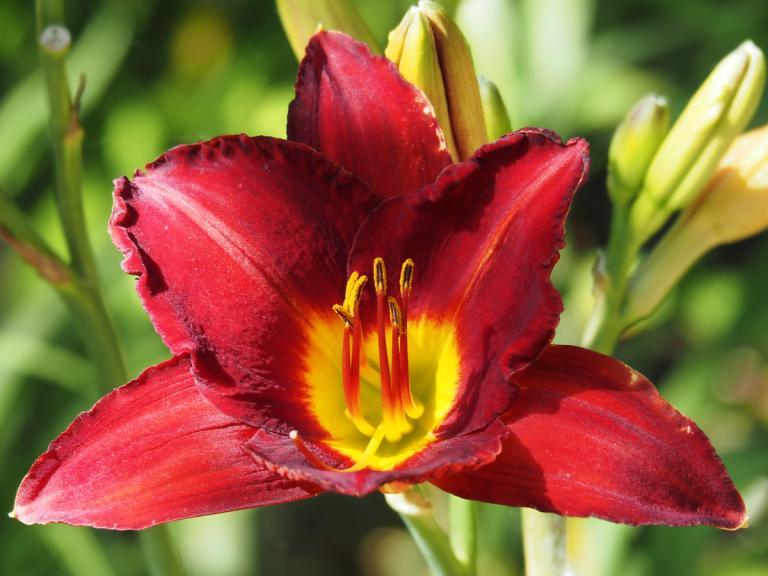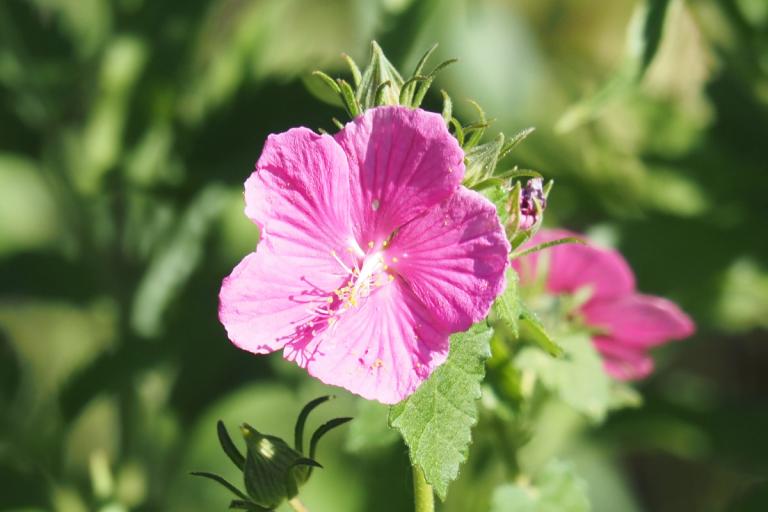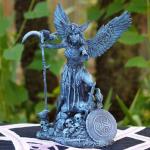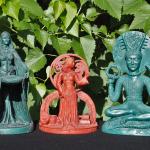The Summer Solstice: Celebrating Before the Labors Begin
John Beckett
the Denton Unitarian Universalist Fellowship
June 16, 2024
When asked for a concise definition of modern Paganism, I always give a three-fold answer. I used to begin by saying that Paganism is a view of the Divine as both female and male. I now prefer to say that the Divine is all genders – something I think is supported by a reading of ancient stories about the Gods, and also by contemporary experience. Secondly, Paganism is a connection to Nature and its rhythms and cycles. And third, Paganism is a resonance with the beliefs and practices of our ancestors, especially our pre-Christian ancestors. It’s this third point that I want to focus on today.
As modern Pagans, we’re inspired by our ancestors. We use scholarship – especially history, archaeology, and anthropology – to try to understand what they did, why they did it, and what it meant for them. We use our own first-hand experiences. We’re not so very different from our ancestors, and if we stand under the full moon or on the sea shore or on the top of a mountain, Nature will speak to us just as Nature spoke to them. If we pray to the Gods, they will answer us just as they answered people thousands of years ago.
At the end of the day, our goal is to create a religion that is inspired by the ancients, but that speaks to us here and now. We cannot and should not try to duplicate exactly what our ancestors did. We are not pre-Roman Celts or Pharaonic Egyptians – we are, at least in this country, 21st century Americans. Mistaking the cultural norms of ancient times for a divine mandate is an error of fundamentalism, one we do not wish to repeat.
The Wheel of the Year is both old and new
This mixture of old and new is clearly evident in the modern Pagan Wheel of the Year, the eight holy days roughly based on the agricultural cycle of Iron Age Europe that a majority of contemporary Pagans observe, including us here at Denton CUUPS. The solstices and equinoxes are natural occurrences that pre-date all religions, and it may very well be that the Winter Solstice is humanity’s oldest holy day. The four cross quarter days that occur in between the solstices and equinoxes – the fire festivals of Imbolc, Beltane, Lughnasadh, and Samhain – are attested in ancient Celtic lore. But there is no evidence that any group of people ever celebrated all eight days until Gerald Gardner, the founder of Wicca, wrote about it in the 1950s.
Does that make the Wheel of the Year inauthentic? Perhaps, but that doesn’t matter. We get together every six or seven weeks to honor our Gods and ancestors, to celebrate the changing seasons, and to celebrate being Pagan. It works, and that’s what matters most.
The next stop on the Wheel of the Year is the Summer Solstice. The astronomical solstice – the longest day and the shortest night – is this coming Thursday, June 20, at 3:50 PM CDT. Denton CUUPS’ Summer Solstice circle will be this Saturday at 7:00 PM and everyone is invited.
The wisdom of the Summer Solstice
As modern Pagans, we are inspired by our ancestors. What inspiration did they leave us for how to celebrate the Summer Solstice?
Not much.
Numerous ancient monuments – especially in Britain and Ireland – are aligned with the equinoxes. Newgrange, the 5000 year old tomb-shrine in Ireland, is brilliantly and dramatically aligned with the Winter Solstice. But the Summer Solstice? There’s nothing.
Thousands of people will gather at Stonehenge on Thursday night, hoping for a glimpse of the Summer Solstice sunrise on Friday morning. They’re continuing an ancient Druid tradition that dates all the way back to… the 1880s. Yes, Stonehenge is aligned with sunrise at the Summer Solstice, but that means it’s also aligned with sunset at the Winter Solstice. A look at the lay of the land – especially the avenue the ancient Britons used to approach Stonehenge – and a bit of knowledge about ritual and it’s obvious that all those thousands of people are there six months out of phase.
Most of them are just there for a party, but if it works for them, I’m happy for them. New traditions are valid traditions too. But Stonehenge provides no help in figuring out how to celebrate the Summer Solstice.
There are a few folk customs remaining in the countries around the Baltic Sea, things that may have been religious at one point but whose deeper meanings have been lost in the centuries since the conversion to Christianity. They mostly involve flowers and bonfires and staying up all night at a time when it never really gets dark. But for people at more moderate latitudes, the Summer Solstice doesn’t seem to have been a very important day.
The Wheel of the Year is loosely based on the agricultural cycle. We’ve celebrated the three Spring holy days: Imbolc, the promise of Spring in the dead of Winter. Ostara, the Spring Equinox and the return of life to the land. And Beltane, the beginning of Summer and a celebration of fertility. In August we’ll celebrate Lughnasadh and the grain harvest – something that used to be rather timely here in North Texas, before all the cornfields were cut up into subdivisions. Then comes the Fall Equinox and the apple harvest, and then Samhain, the final harvest and the beginning of Winter.
And here we are at the Summer Solstice, in between the planting and the harvesting, with not much to do.
There is wisdom for us here, if we will see it.
We have been busy. We will be busy again. The Summer Solstice is a time to rest and to celebrate, before the labors begin again.
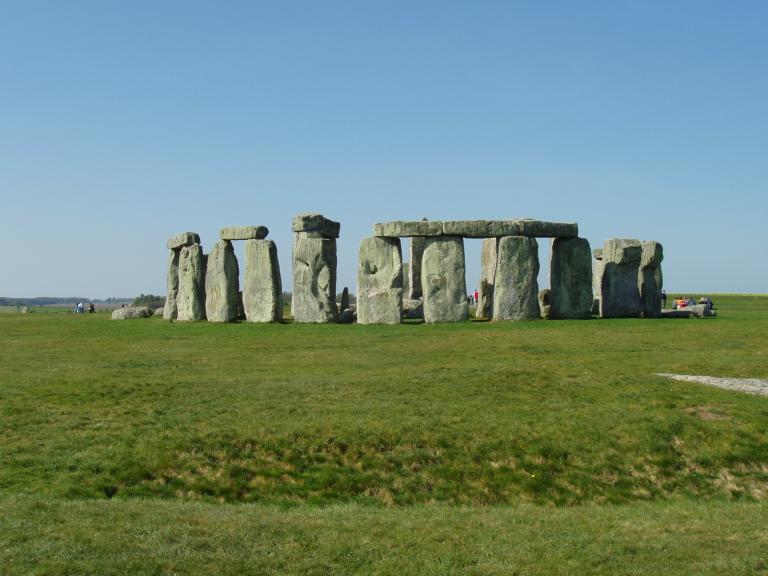
This election is critical – vote!
The most obvious labor that is coming is the election this November.
DUUF is a tax-exempt religious organization. I cannot and will not tell you which candidates and which parties to vote for. I will impress on you the importance of voting. Democracy only works when people actively participate in the political process. If we can’t be bothered to vote, or if we’re so cynical we’ve convinced ourselves voting doesn’t matter, then we’ve given away our rights and our voice and we will be governed by people who do not share our values.
As others have said, voting is not like getting married – we need not agree with a candidate on every issue, or even on many issues. Voting is like buying a bus ticket – you pick the bus that’s going to get you closer to where you want to go, with the full realization that no one bus is going to get you there all at once.
Vote for reproductive rights at every level
Like most UUs, I fully support reproductive rights, including the right to abortion. The question of when human life begins is far more complicated than those on the pro-forced birth side are willing to accept. Both the science and the religion are deep, complex, and diverse. No one has the right to make this choice for another, nor to force someone to be pregnant or remain pregnant against their will.
For 50 years, Roe v. Wade was the law of the land. In 2016 a small but ultimately significant number of people decided they just didn’t like Hillary Clinton, so they didn’t vote. And so instead of more Supreme Court Justices like Ruth Bader Ginsburg, we got Gorsuch, Kavanaugh, and Barrett, all of whom said Roe v. Wade was settled law and all of whom voted to overturn it in the 2022 Dobbs decision. For the first time, the Supreme Court of the United States took rights away from people instead of expanding them.
Elections have consequences. Not voting has consequences.
As conservatives like to point out, Dobbs did not make abortion illegal. It returned the decision to the states. So in states like California and Colorado, abortion rights are firmly encoded in state law. Meanwhile, in Texas abortion is unobtainable even when the pregnant person is near death, and a man is trying to file a wrongful death lawsuit because his partner obtained a legal abortion in another state.
Which is to say, there is more than one race on the ballot in November. Every race matters, especially for the state House and state Senate. Learn who the candidates are and buy your bus ticket for the ones that get you closer to where you want to go.
Anti-choice activists worked for 50 years to overturn Roe v. Wade. We should not give up if we are unable to restore its protections in two years. The anti-choice activists haven’t declared victory and gone home – they will not be satisfied until there’s a nation-wide abortion ban. And also, they’re working to overturn the rulings that established same sex marriage, that decriminalized same sex activities, and that established the right to birth control. These people vote in every election. We who respect the rights of people to be who and what they are and to live their lives as they see fit without government interference can do no less.
This is June. We have a few more weeks to rest, before the party conventions and the debates, before the onslaught of TV ads full of half truths and outright lies, and before it’s time to go to the polls and participate in the messy but necessary process of democracy. Celebrate the fact that we still have the right to vote. Celebrate that we have the hope of not just restoring fundamental rights, but of expanding them and building a society that’s more fair and more just.
This is the Summer Solstice. Rest and celebrate, before the labors begin.
A refuge and a lighthouse
Not all coming labors are so expansive. Some are much more local, including the coming labors right here in our UU Fellowship.
I joined DUUF in 2004. In my 20 years here, we’ve had times of stability and times of turmoil, but we’ve never had a time when we felt like we were exactly where we needed to be, and where we wanted to be. All living things grow and change, and DUUF is most definitely a living thing.
I thought calling Rev. Eric Posa to be our minister was absolutely the best thing we could do as we attempted to return to normal after the lockdowns of the pandemic. I was wrong. I think we all understand that was no fault of Rev. Eric’s. The world changed. It changed for mainline churches, it changed for liberal churches, and it changed for conservative churches. Across the spectrum, fewer people are going to church, participating in church activities, and giving money to support churches and their ministries. We learned that right now we cannot support a full time minister. That’s not a failure or a shortcoming – it’s just reality.
And still, here we are. We were a lay-led congregation when I joined DUUF, we’ve been a lay-led congregation at other times, and we are a lay-led congregation once again.
I thank our outgoing Board of Trustees, whose jobs got considerably harder after they agreed to serve. I thank our incoming Board of Trustees, who have agreed to serve in an environment in which what we will be is still uncertain. And I thank everyone who has served and is serving, on committees, in worship, in religious education, in maintenance and cleanup, and in doing all the things that keep this Fellowship doing the things that make us a Fellowship.
Traditionally, our church year begins at Ingathering, the last Sunday in August. In reality it starts in early August, when our folks start to return from their summer travels and studies and kids’ sports, and when visitors start “church shopping” for the coming year. We have a few weeks until then, to decide what we want to do and be – at least for this year.
For as long as I’ve been here, DUUF has had two primary missions. The first is to be a refuge for those of us who are here. Denton is a fairly accepting town, but parts of it are not, and Texas is Texas. DUUF is a home for those who need a home: especially for LGBTQ folks, and for folks like me whose religious beliefs and practices don’t exactly line up with the Baptists. As we say in our CUUPS circles, “we welcome all who come in love and friendship.” This is our home, a place where we can drop our masks and be who and what we are without fear of judgment.
How can we best take care of our own, with the resources we have at our disposal?
Our second primary mission is to be a lighthouse, to spread our UU values in the wider community. “Changing hearts and minds” is a huge task fraught with danger, but never underestimate the value of simply being who and what you are in public. If nothing else, we let people know that “no, everybody doesn’t think like that.” “Yes, every person has inherent dignity and worth, and everyone should be treated with justice, equity, and compassion.” “No, there’s no One True Religion, and there aren’t even many paths up one mountain. There are many paths up many different mountains, and all of them are valid, if they help you live in harmony with yourself and with your neighbors.”
We may never convert anyone who is opposed to our values, but we let people who are on the fence know there’s another way of seeing the world. And we let those who do share our values but who feel isolated know they’re not alone, and that there’s a place for them, if they want it.
Being a lighthouse is easy when you have a full time minister with the time and inclination to participate in public events. It’s harder when you’re a lay-led congregation where most people have jobs and families that occupy most of their time. We must be careful not to overcommit ourselves. But also, being a lighthouse is a sacred obligation we should not forget.
How can we best share our values, with the resources we have at our disposal?
This is the Summer Solstice. Rest and celebrate, before the labors begin.
Building on the work of those who came before us
As is our tradition in Denton CUUPS, Saturday’s Summer Solstice circle is inspired by the beliefs and practices of ancient Egypt – which are very different from those of the Celts and Norse and other peoples of Europe.
In Egyptian mythology, Ausir – Osiris – was the first Pharoah. He was murdered by his jealous brother Set, and then restored to life by his wife Auset – Isis. But he moved on to become the ruler of the Duat – the afterlife – and his throne in this world was taken by his son Heru – Horus. Some say Horus is still there. Most contemporary Egyptians are good Muslims, but they were putting statues of Horus on their buildings long before Muhammad and they see no reason to stop now.
When Horus took the throne of Egypt, he did not start over. He built on what his father – and his mother – had done. Set destroyed some things but not all, and what remained gave Horus and the people a place to start. What they built lasted for 4000 years. Historians have divided Egypt into Kingdoms and Dynasties, with Intermediate Periods when things weren’t going so well for Egypt. But the nation and the culture were remarkably stable for four millennia. The last Pharoah is closer in time to us than to the first Pharoah.
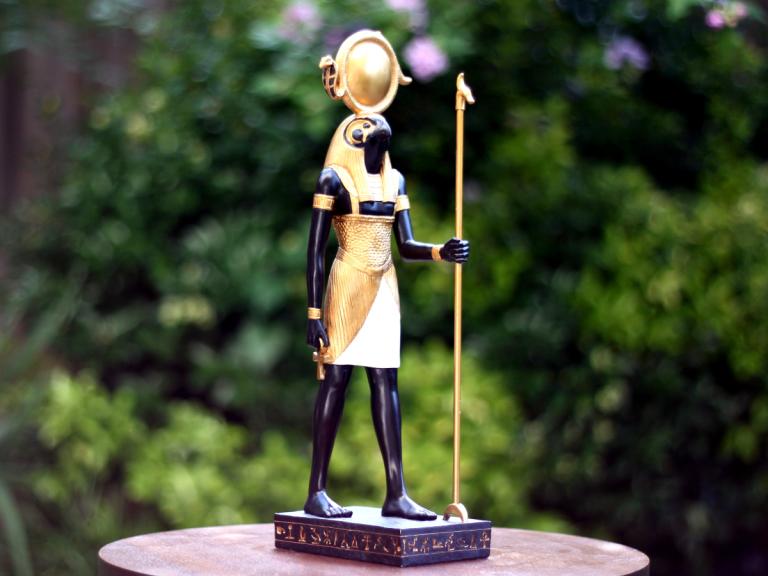
Likewise, we need not start over, not in our political work and not in our work here in this Fellowship. We have institutions we can work with, and work within. They aren’t perfect, but they’re a place to start in our efforts find a bus that will take us where we want to go, more or less. They’re especially important for those who need urgent help, as with those who need reproductive care that is no longer available in Texas.
Our Denton UU ancestors left us not just the building and grounds, but also a 70 year history of being both a refuge and a lighthouse. What they did in the past – some of which was far less friendly to UU values than today – we can do now. And gradually – month by month, year by year, election by election – we can build both a Fellowship and a society that better embodies our UU values of acceptance and inclusion.
This is the Summer Solstice. Rest and celebrate, before the labors begin.
Conclusion
Democracy only works when we participate. Billionaire dollars, gerrymandering, and voter suppression make participating more difficult than it should be, but that just makes it that much more critical that those of us who can vote do vote, in every race in every election.
DUUF is not the church we thought it would be this time last year. But there are many ways we can fulfill our dual mission of being a refuge and a lighthouse. We have to choose which ways work best for us, here and now.
The work is coming – work that is critically important for our future. But for now, this is the Summer Solstice. Rest and celebrate, before the labors begin.
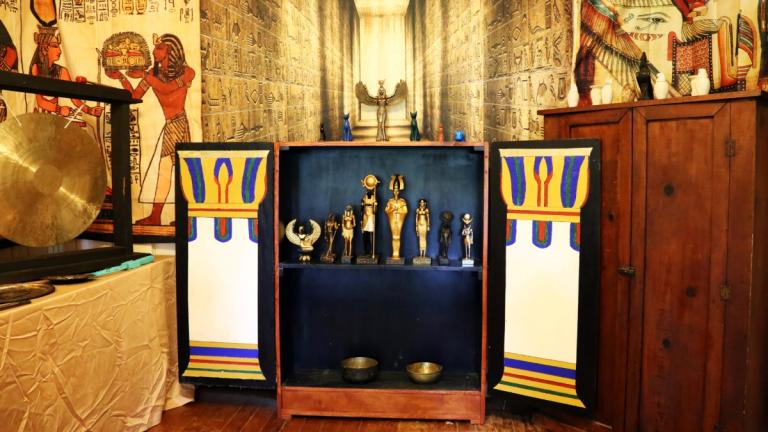
Benediction
The Summer Solstice is a natural event that’s been going on for as long as the Earth has been tilted on its axis. It’s the longest day and the shortest night – we have 14 hours and 21 minutes of daylight here in Denton. Seattle has 16 hours, and Fairbanks Alaska has almost 22 hours.
Culturally and religiously, the Summer Solstice feels less important than other holy days. Certainly it was less significant to our Pagan ancestors. But, positioned between the planting and the harvesting, it still has wisdom for us, if we will see it.
Important labors are coming, but they are not here yet. Take a vacation. Read a book. Watch a silly movie or three. Join us for our Summer Solstice circle this Saturday night.
This is the Summer Solstice. Rest and celebrate, before the labors begin.


